Climbing Peak Palatka is a physically demanding high-altitude expedition, and proper pre-expedition training is vital for both your performance and safety. Prioritise aerobic fitness, leg and core strength, and muscular endurance through consistent hiking, trail running, and cycling. Focus particularly on uphill work while carrying a loaded backpack to replicate the demands of the ascent. Exposure to cold, uneven terrain, and extended trekking days requires strong conditioning and mental resilience. Practice controlled breathing, stay mindful of your pacing, and cultivate a mindset ready to adapt to altitude. With the right preparation, you'll arrive confident, capable, and ready to embrace the challenge of one of Central Asia’s wildest peaks.
Proper preparation and equipment are essential for your safety and comfort during this Peak Palakta expedition. Below is a comprehensive kit list to help you prepare:
+ Kit ListFREC 3 medic in the team / helicopter evac possible / Frequent health monitoring on route
Please ensure that you have the correct insurance cover before departing for this trip. Your insurance must cover high altitude trekking and climbing to a height of 4,650 meters / 15,256 feet. Helicopter rescue and repatriation is compulsory.
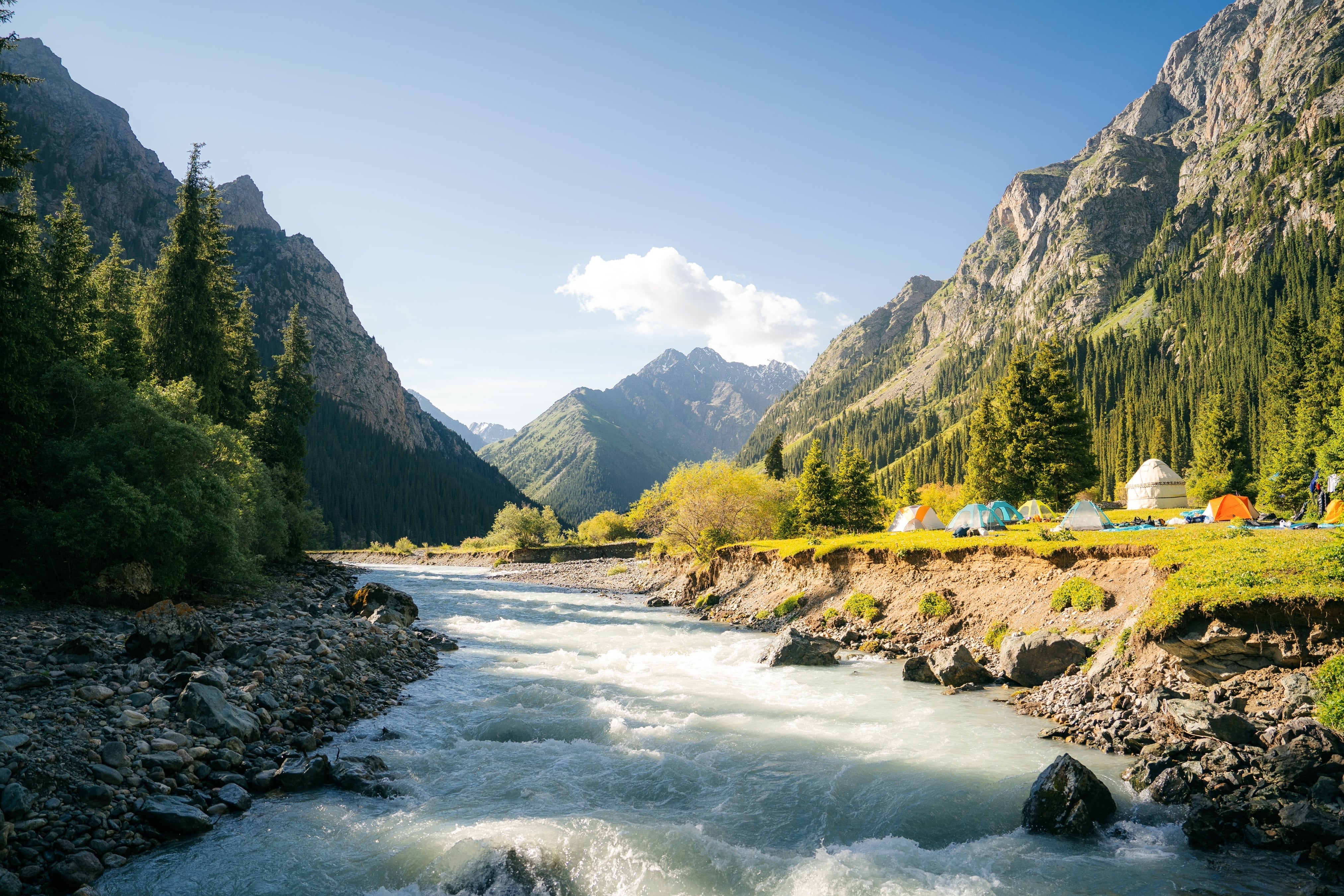
Climbing Peak Palatka is more than reaching a summit. It is a journey into the wild heart of the Terskey Alatau range in Kyrgyzstan, where glaciated peaks rise above alpine lakes and deep valleys of the Tian Shan mountains. The expedition begins in Bishkek before traveling east across open steppe and past Issyk-Kul Lake, with stays in yurts and opportunities to connect with local nomads and culture.
The trek moves through lush valleys, glacial rivers, and snow-covered passes, with guided movement and acclimatisation built into the schedule. Each day brings altitude, anticipation, and immersion in this remote, rugged terrain, preparing you for the final ascent.
Reaching the summit at 4,650 meters is an unforgettable experience, surrounded by untouched wilderness and jagged skylines. Under Jay Morton’s expert guidance, every detail from safety to mindset is managed, making this more than a climb; it is a transformative adventure in one of Central Asia’s most remote and inspiring landscapes.
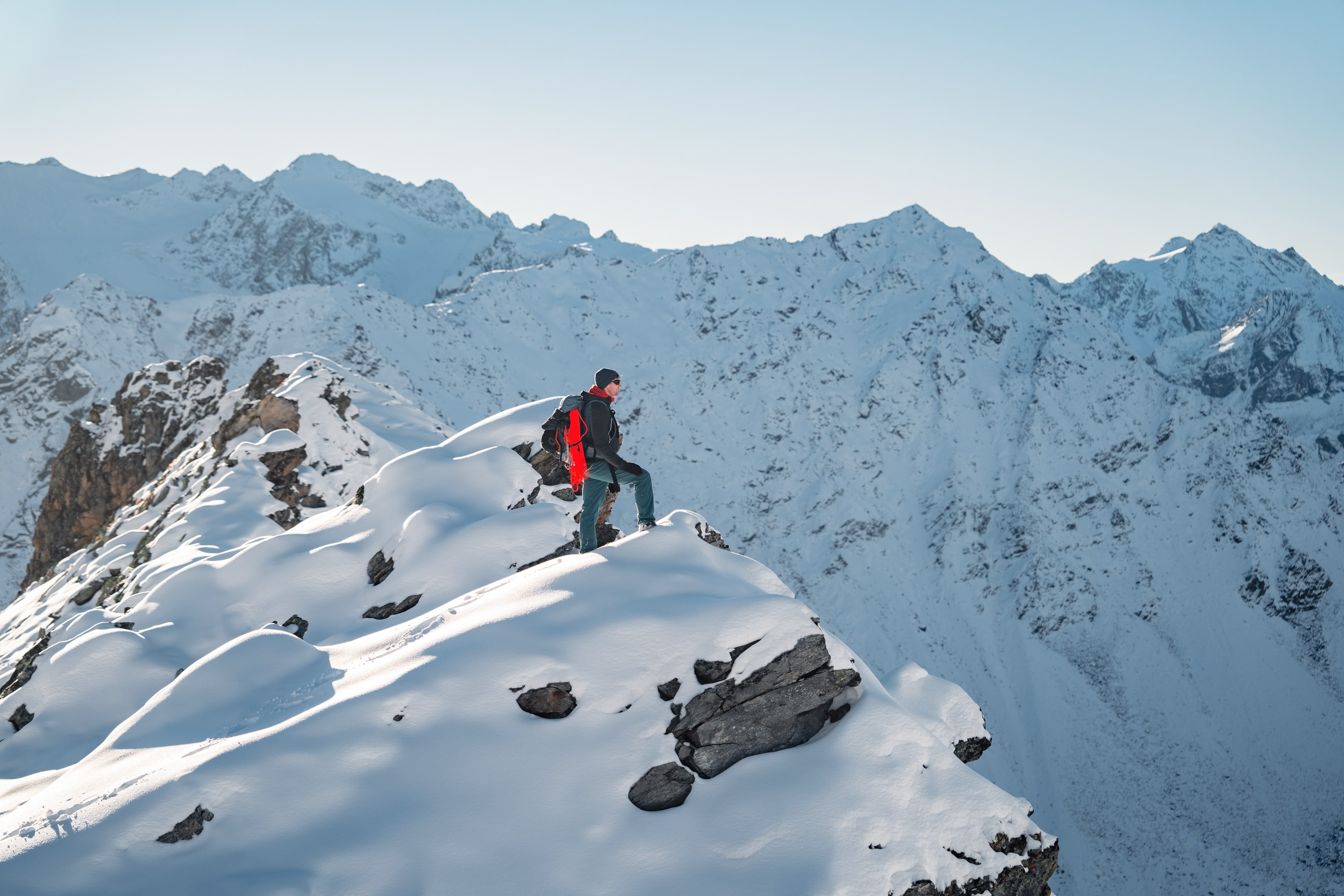
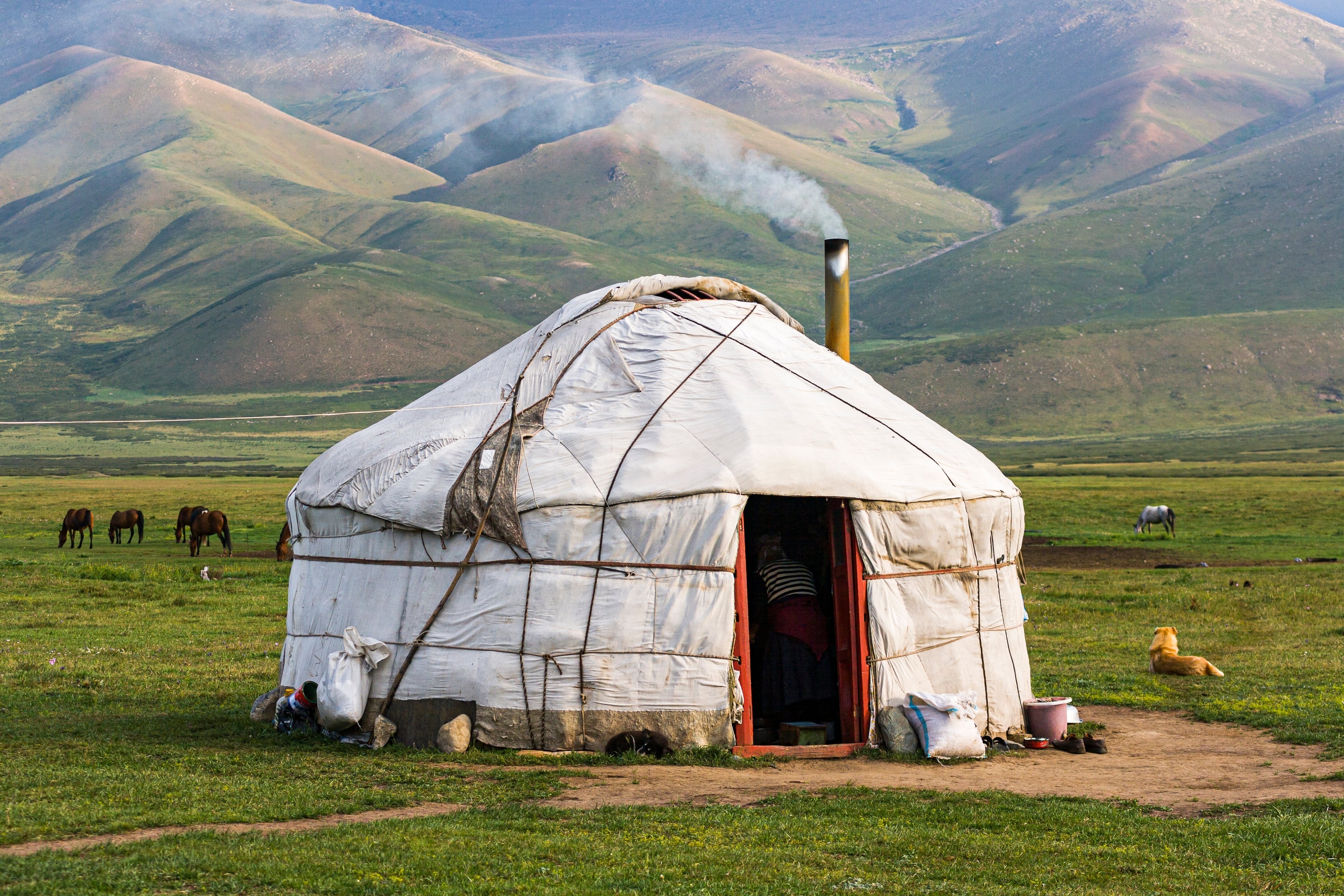
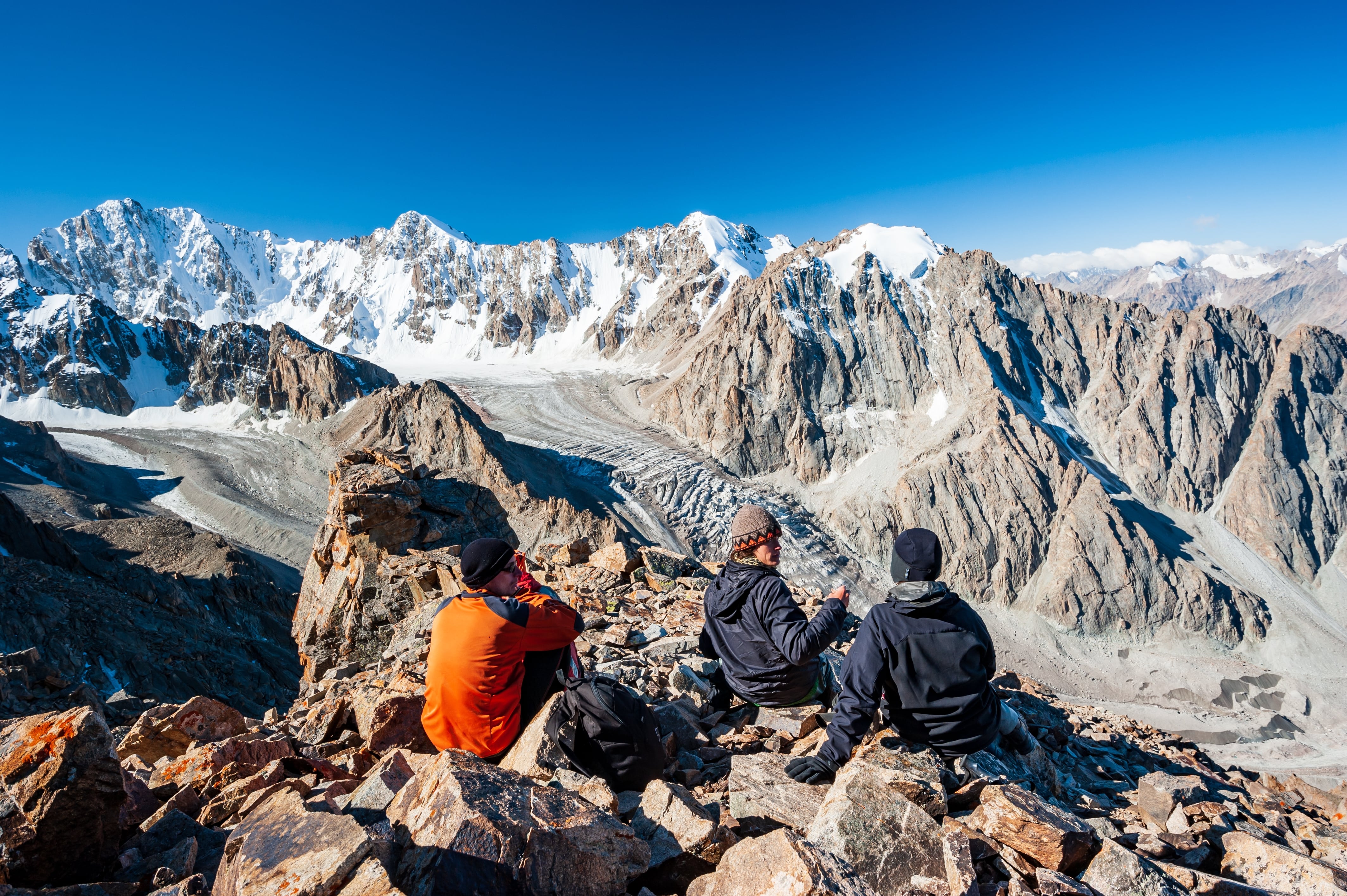
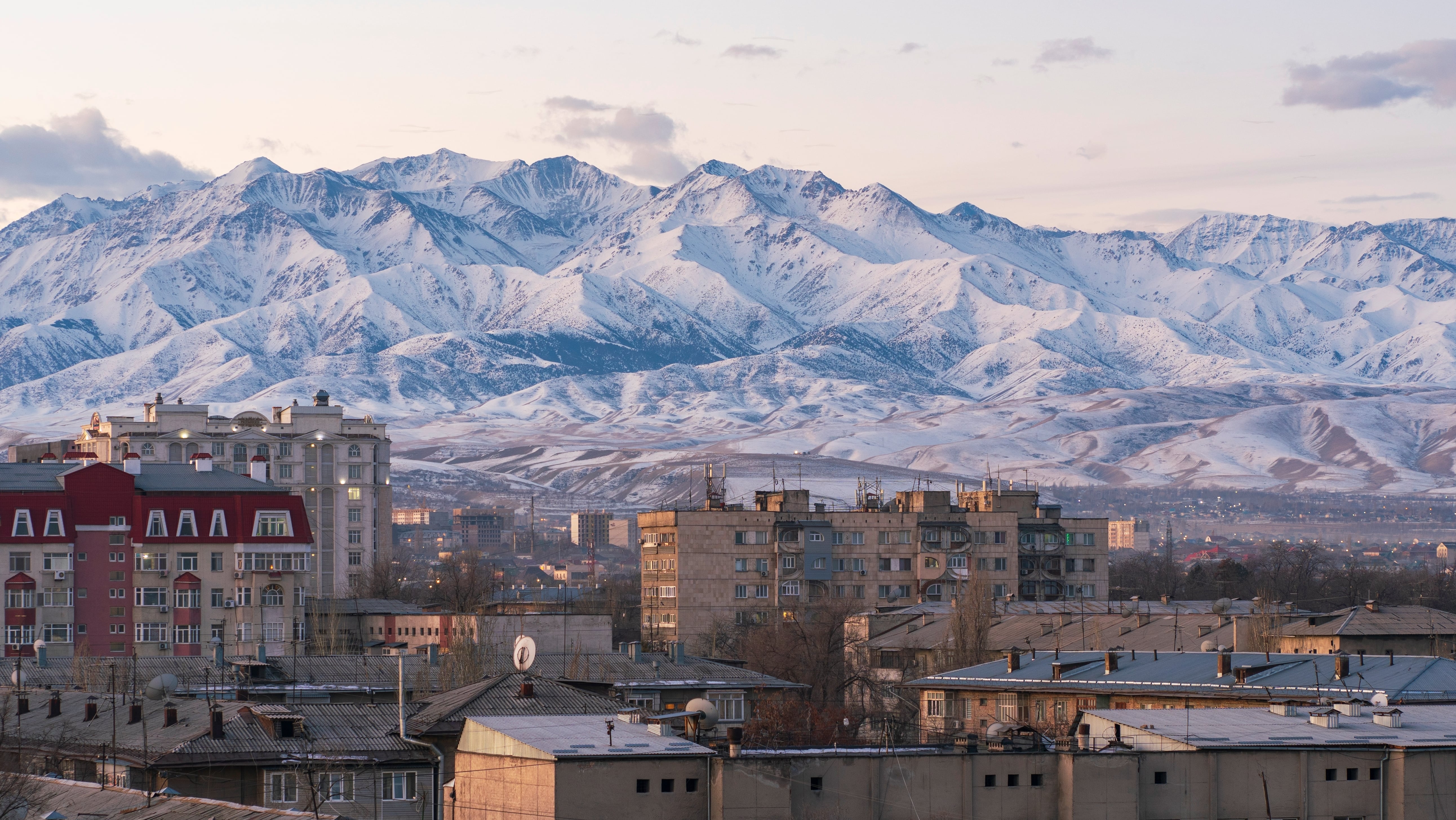
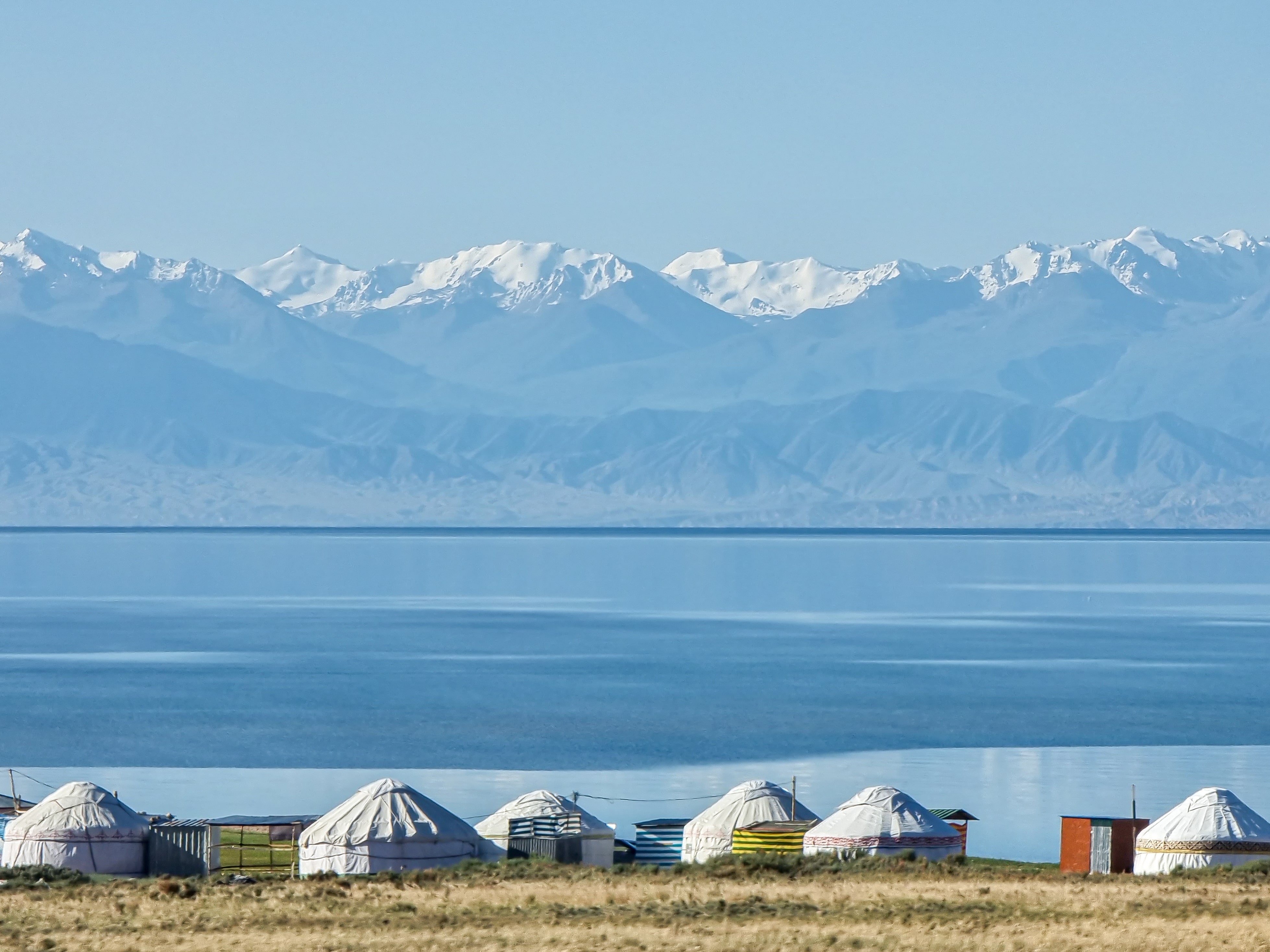
Climbing Peak Palatka at 4,650 meters is a truly immersive expedition. It combines breathtaking alpine scenery, the untouched culture of Central Asia, and the challenge of ascending a remote, high-altitude peak. The journey tests physical endurance and mental focus while rewarding climbers with the rare experience of reaching a summit few ever see, surrounded by silence, vast skies, and the spirit of true exploration.
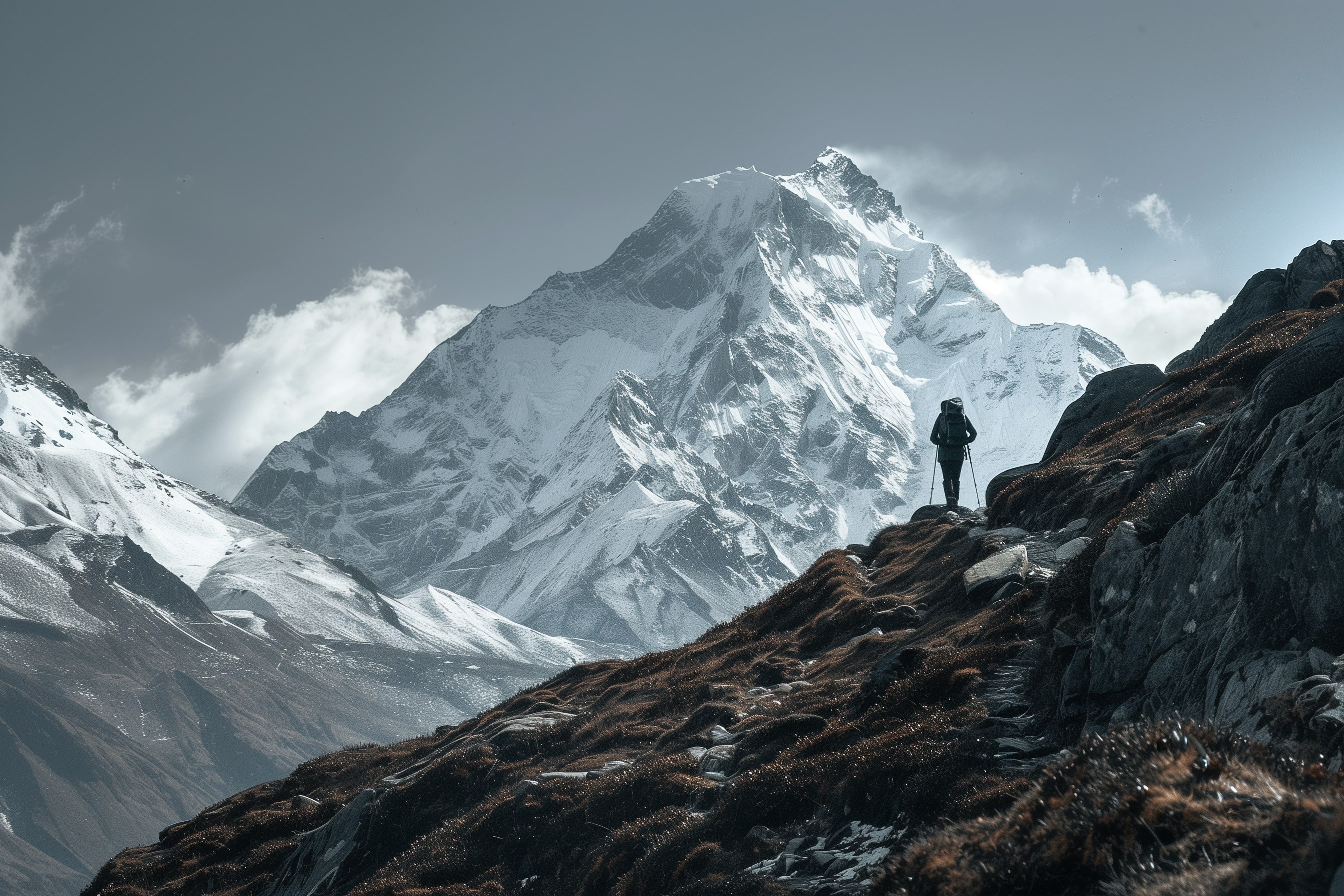
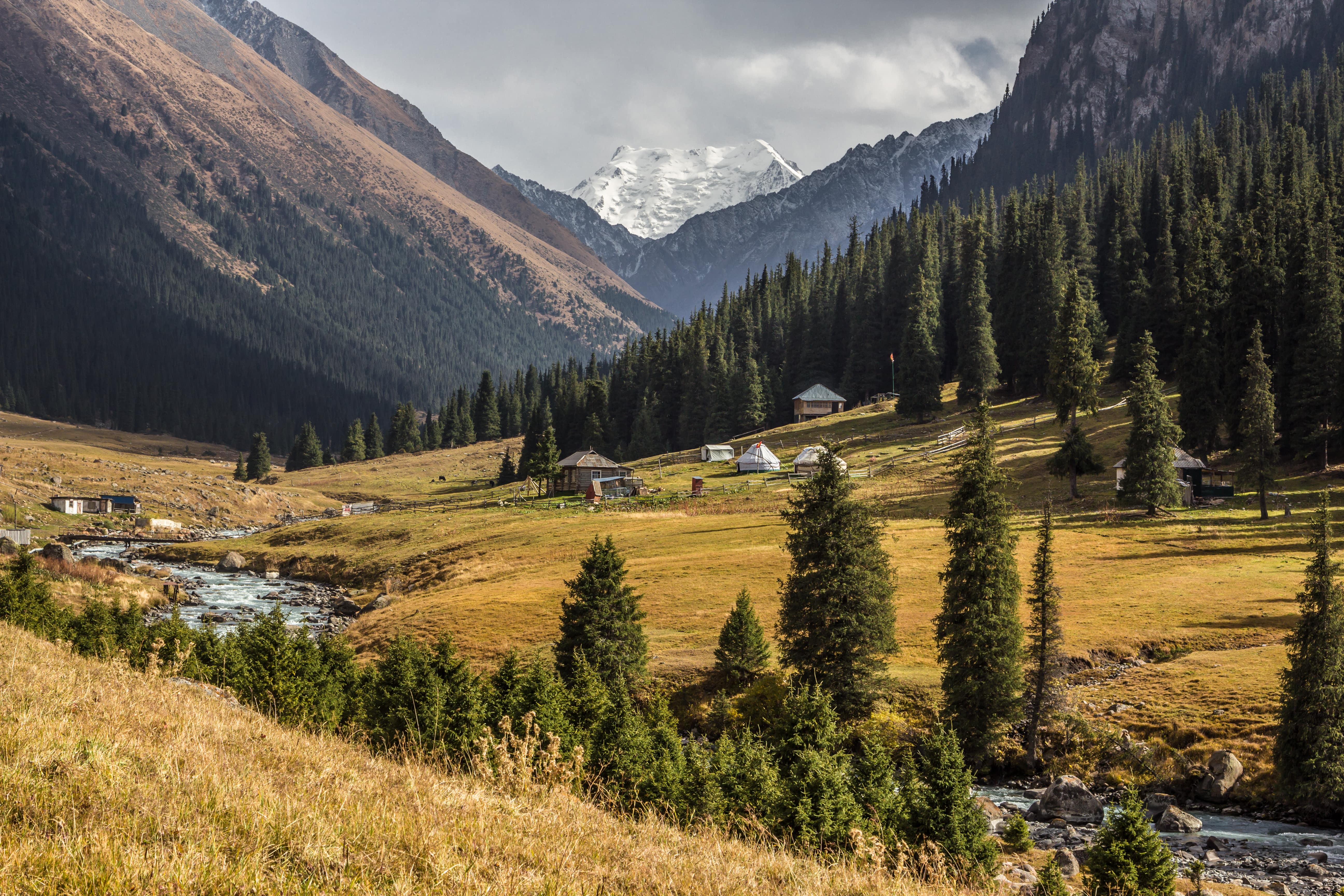
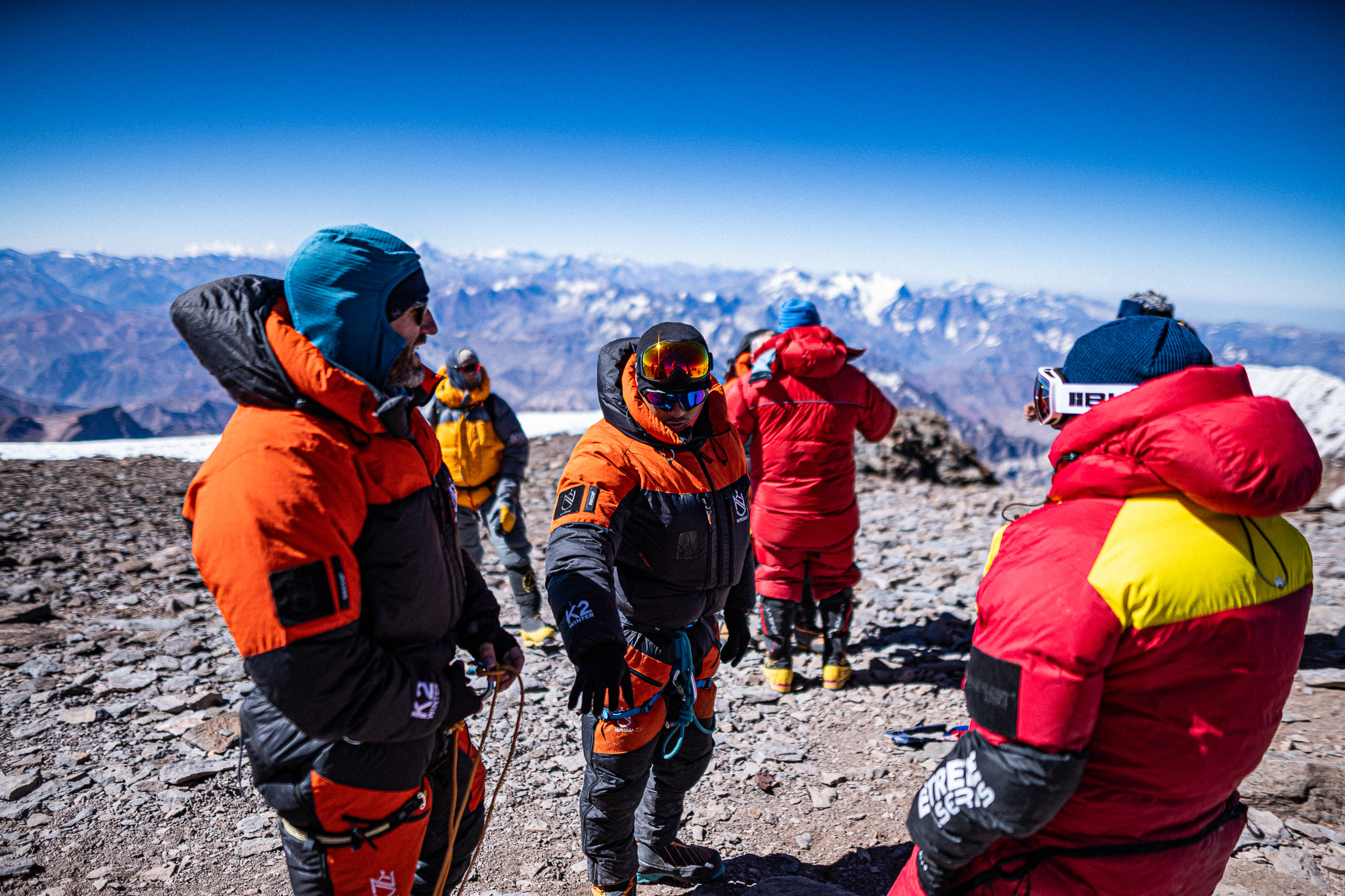
Base Layers
3-4 moisture-wicking thermal tops
2 pairs of thermal bottoms
Mid Layer
Fleece jacket or pullover
Insulated softshell jacket
Outer Layers
Waterproof, breathable hardshell jacket with a hood (GORE-TEX or equivalent)
Waterproof trousers
Insulated Layers
Heavyweight down or synthetic insulated jacket (suitable for temperatures down to -20°C)
Insulated trousers
Trekking Clothes
2–3 pairs of quick-drying trekking pants
Multiple sets of sports underwear (merino preferred)
3-4 quick drying t-shirts
Gloves
Lightweight gloves for trekking
Insulated gloves or mitts for summit day
Spare gloves
Headwear
Warm beanie or fleece hat
Neck gaiter or Buff
Baseball cap or sun hat
Sturdy, waterproof trekking boots or approach shoes
B2/B3 mountaineering boots compatible with crampons
5–6 pairs of moisture-wicking trekking socks
1–2 pairs of expedition socks for summit day
Sandals or sturdy flip-flops for base camp
Climbing Gear
12-point steel crampons (ensure compatibility with your boots)
Climbing harness
Climbing helmet
Mountaineering ice axe
2x open gate carabiners, 2x screw gate or triple-lock carabiners
Prusik loops and slings
Belay/rappel device (if required)
Sleeping Gear
4-season sleeping bag (comfort rating of -20°C / -4°F)
Sleeping bag liner (for added warmth)
Inflatable expedition sleeping mat
Foam sleeping mat
Backpacks & Bags
Daypack (30–40L) for carrying essentials during the trek
Large duffel bag for porters
Accessories
Mountain sunglasses
Headlamp with spare batteries
2x 1L water bottles with insulation pouches and/or hydration bladder
Buff or neck gaiter
Heat pads for hands (optional)
Pee bottle or Shewee for women
Insulated mug
Knife or multitool
Spoon
Thermos (optional)
Water treatment tools, tablets, or wand (water sources may be unclean)
Spare clothes for downtime
Trekking Gear
Trekking poles (optional)
Toiletries & Personal First Aid
Personal toiletries (biodegradable where possible)
Sunscreen (SPF 50+) and lip balm with UV protection
Hand sanitizer and wet wipes
Personal first aid kit (include altitude medication, blister care, and any prescriptions)
Lightweight travel towel
Personal & Optional Items
Camera or smartphone with extra batteries
Lightweight book or e-reader
Earplugs and facemask
Battery pack
Dust mask for those sensitive to dust
Portable solar charger (optional)
Hand warmers (optional)
Note: Ensure all gear is of good quality and tested before the expedition, especially boots, backpacks, and clothing. If you have questions about any items, feel free to ask for guidance!
Snacks (energy bars, nuts, dried fruit, jerkey, chocolate, etc.)
Electrolyte tablets or powders
Passport (with necessary visas and permits and at least six months left until expiration)
Cash (for tips, snacks, and souvenirs)
Travel and high-altitude, helicoper rescue and repatriation insurance
Correct travel plug adapter
Transfers & Transport: All in-country transport, including private minibus from Bishkek to Karakol and return, 4x4 vehicles to and from the trekking region, and military truck descent from Altyn Arashan
Accommodation: Guesthouse stays in Bishkek, Karakol, and Bokonbaevo on a shared basis (single rooms available on request); traditional yurts near Issyk-Kul Lake; and high-quality mountain tents during the trek
Meals: All meals during trekking days and selected meals in cities and yurt camps; meals are freshly prepared by our expedition cook using local ingredients
Guides & Support Team: Qualified local mountain guides, experienced trekking support, porters, and camp cook; all staff receive fair wages, food, equipment, and appropriate insurance
Climbing & Camping Equipment: All group equipment, including sleeping tents, dining shelters, cooking gear, and insulated mats provided during the expedition
Permit Assistance: National park access, climbing permits, and all necessary local permissions are secured as part of your package
Horse Support: Gear transport provided by pack horses for the duration of the trek; optional horse riding available on request at key points
Hot Springs Access: Enjoy a natural soak at the famous hot springs of Altyn Arashan after your descent
International Flights: Return travel to/from Bishkek is not included
Personal Gear: Mountaineering boots, crampons, harness, helmet, ice axe, sleeping bag, and personal trekking/climbing kit must be brought or rented
Travel Insurance: Must include cover for trekking at altitude (up to 4,700m), medical treatment, and emergency evacuation/rescue (including helicopter, where applicable)
City Meals: Meals during your stay in Bishkek and Karakol (outside of those included in the itinerary) are not covered
Beverages: Alcoholic drinks and additional beverages outside of the included meals
Tips & Personal Expenses: Gratuities for guides and staff, souvenirs, snacks, laundry, and other personal purchases are not included
Unlisted Services: Any services not mentioned under “What’s Included” or requested beyond the agreed itinerary
If you cancel your trip, deductions will be made from your advance payment to cover allocated costs. Charges are: 90+ days before departure:
Full refund of deposit 61-90 days:
70% refund of deposit 46-60 days:
50% refund of deposit 31-45 days:
No deposit refund + 30% of total trip cost
30 days or less: 100% of total trip cost
All cancellations must be submitted in writing (email or letter) within the notice period.